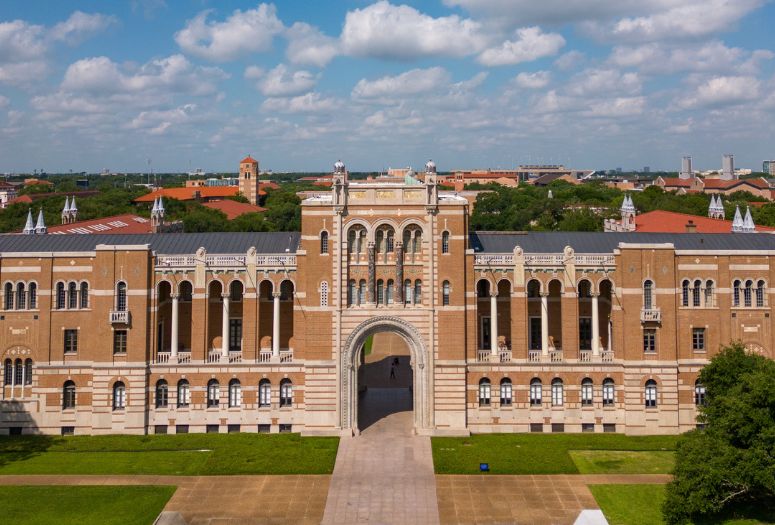A new study highlights that Rice University is distinguished by its religious and cultural diversity, offering a more welcoming environment for both religious and non-religious students compared to the general population. Most Rice students feel the campus fosters a hospitable atmosphere that supports their beliefs and identities, the study suggests.
The survey of 2,089 undergraduate and graduate students by Rice’s Boniuk Institute for the Study and Advancement of Religious Tolerance found that 70% of students think that Rice is a safe space for someone with religious or non-religious beliefs like theirs.
The Rice student body is very religiously diverse compared to the general U.S. population with more than 60% of students identifying with some religious tradition, the survey’s authors said. The majority of responding students said that coming to Rice has helped them learn to appreciate religious differences. All 8,333 Rice students were invited to participate in the survey conducted in March. The survey participation rate was 25%.
“This diversity gives Rice a kind of natural laboratory to practice religious pluralism. We provide our students with a safe environment where they can learn to engage with those who are different while nurturing and affirming their own identities,” said lead study author Elaine Howard Ecklund, director of the Boniuk Institute and the Herbert S. Autrey Chair in Social Sciences. Kerby Goff, the institute’s associate director of research, was the co-principal investigator for the study.
Rice students experience much less religious bias and hostility than the general public, according to the survey. Yet, over one-third (35%) of undergraduate students and 22% of graduate students said they have been judged because of their religious or non-religious identity or beliefs. Looking at each religious identity separately, the study found that 66% of Jewish students report being judged for their religious identity, followed by 54% of evangelicals and 45% of Muslims.
“We are in a pivotal moment in history, facing a tragic situation in the Middle East. We are seeing a rise in antisemitism and Islamophobia both nationally and globally, so I strongly suspect these issues play a role in students’ experiences,” Ecklund said. “Rice’s religious diversity and close-knit community give us a unique opportunity to support our students and help them to respond thoughtfully, intelligently and compassionately to religious differences."
In the survey, students suggested several ways to improve religious accommodations and tolerance at Rice, including offering a required religious literacy seminar for first-year students, increasing halal and kosher food options, better accommodating religious holidays, and expanding the Muslim prayer room and adding washing stations.
Rice currently provides halal food to meet the dietary needs of its Muslim students. Starting this fall, Seibel Servery will offer a dedicated kosher menu for Jewish students. In addition, the university is organizing several events and speakers that will highlight religious diversity and learning from different perspectives and cultures.
“We are closely examining and expanding religious accommodations to meet student needs and enhance religious tolerance and pluralism on campus,” said Amy Dittmar, Howard R. Hughes Provost and executive vice president for academic affairs. “Our commitment is to ensure every student feels supported while continually improving our campus culture. The survey results offer valuable insights into how we can better serve students of all religious and non-religious backgrounds.”
Rice students were also asked about the ongoing crises in Israel and Gaza. The student body is equally split about whether it is important to take a side. Overall, 53% said that it was very or somewhat important to take a side, and 47% said it was not important.
The Boniuk Institute is partnering with the National Opinion Research Center at the University of Chicago to study broader U.S. religious diversity and pluralism, as well as discrimination in response to the Israel and Gaza crises.
“I am grateful to the Boniuk Institute for their expertise in conducting this crucial study and for their ongoing efforts to promote understanding toward achieving a healthy religious pluralism worldwide,” Dittmar said.

